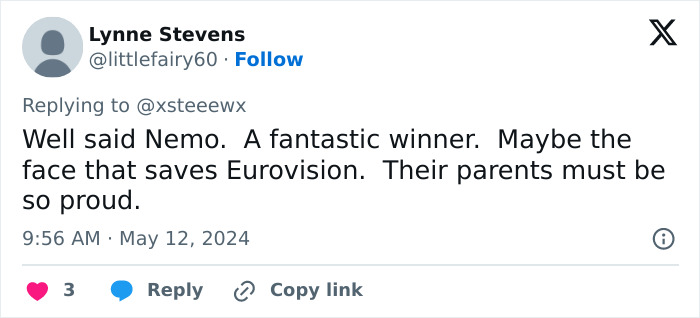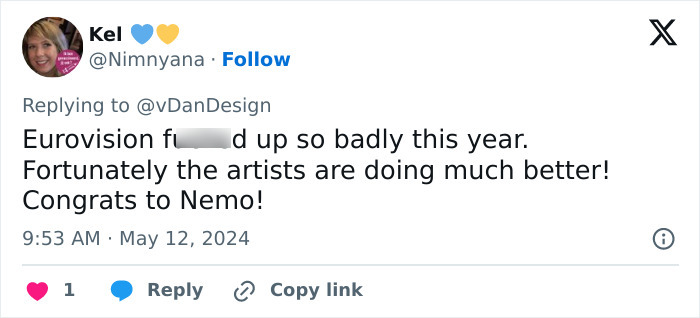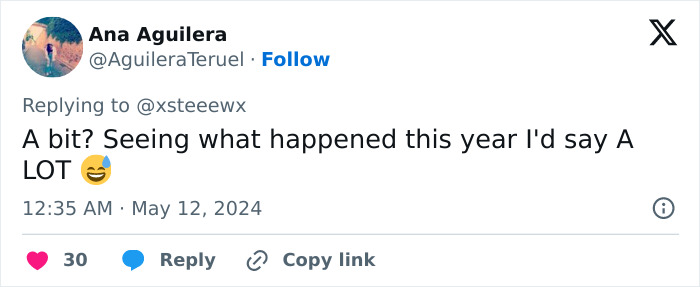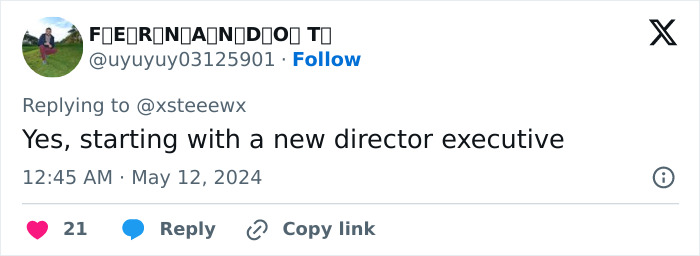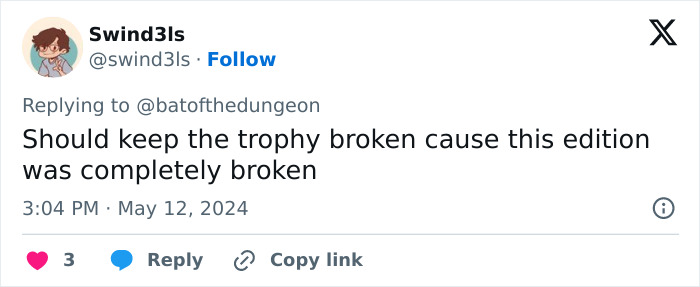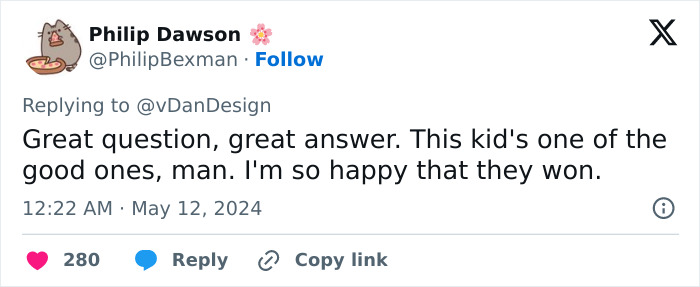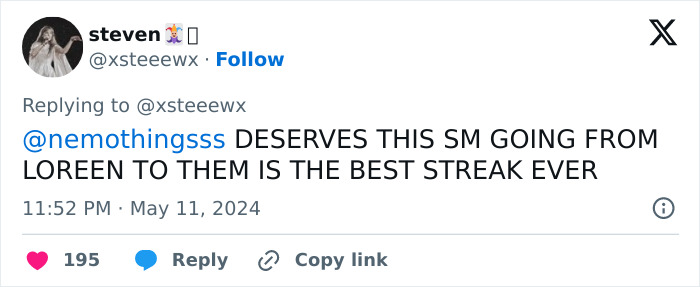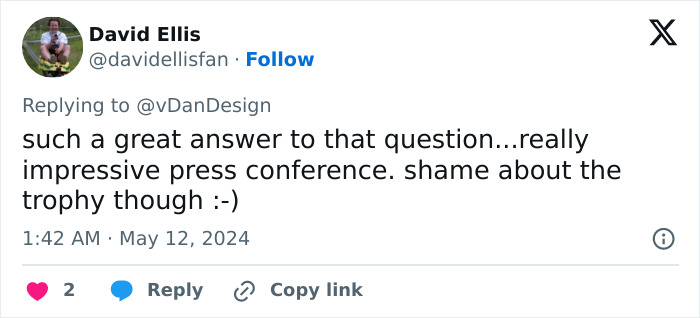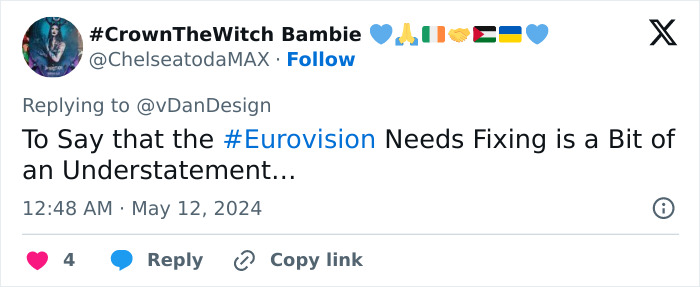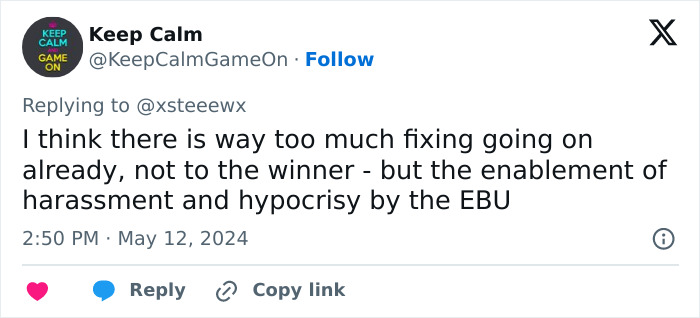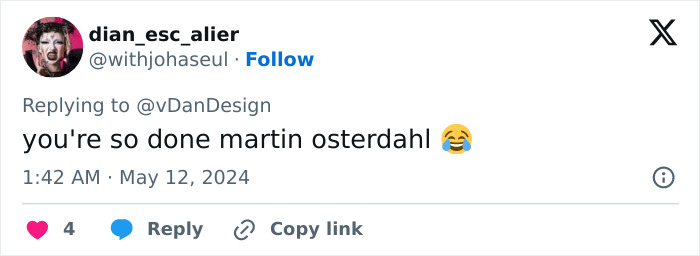(Article updated at 4:10 p.m. CET with a response from the Eurovision Song Contest regarding Nemo’s comments.)
In arguably one of the most controversial years in Eurovision history, Switzerland‘s act, Nemo, criticized the song contest organizers’ “double standards” moments after their victory.
Nemo won Eurovision on Saturday (May 11) in Malmö, Sweden, with their song The Code, making history as the contest’s first-ever non-binary winner. The song also marked Switzerland’s first Eurovision win since 1988, when Céline Dion competed with Ne partez pas sans moi.
The Code topped the jury vote and came in fifth in the public vote.
Switzerland took home the trophy with 591 points. They were followed by Croatia (547 points), Ukraine (453 points), France (445 points), and Israel (375).
Eurovision winner Nemo criticized the song contest organizers for “saying no” to people bringing non-binary flags into the Malmö Arena in Sweden

Image credits: Eurovision Song Contest
During the post-show press conference, Nemo hit out at Eurovision organizers, the European Broadcasting Union (EBU), alleging that audience members were not permitted to bring non-binary flags into the Malmö Arena.
“I had to smuggle my flag in because Eurovision said no, but I did it anyway, so I hope some people did that too,” they said. “But, I mean, come on, this is clearly a double standard.”
The term “non-binary” describes people who have a gender identity that is not simply male or female. Some people who are non-binary experience their gender as both male and female, while others experience their gender as neither male nor female. Non-binary people may prefer a gender-neutral pronoun, such as they/them.
Responding to Bored Panda via email, the Eurovision Song Contest refuted Nemo’s claims, stating that “the flag policy for the Eurovision Song Contest 2024 permitted national flags from participating countries and the pride/rainbow flags so the non-binary flag was accepted under those rules.”
The 24-year-old artist, who accidentally broke their trophy after winning, added, “The trophy can be fixed. Maybe Eurovision needs fixing a little bit, too, every now and then,” a comment that resulted in cheers from reporters in the room.
The Swiss rapper and singer said they had to smuggle in their own non-binary flag
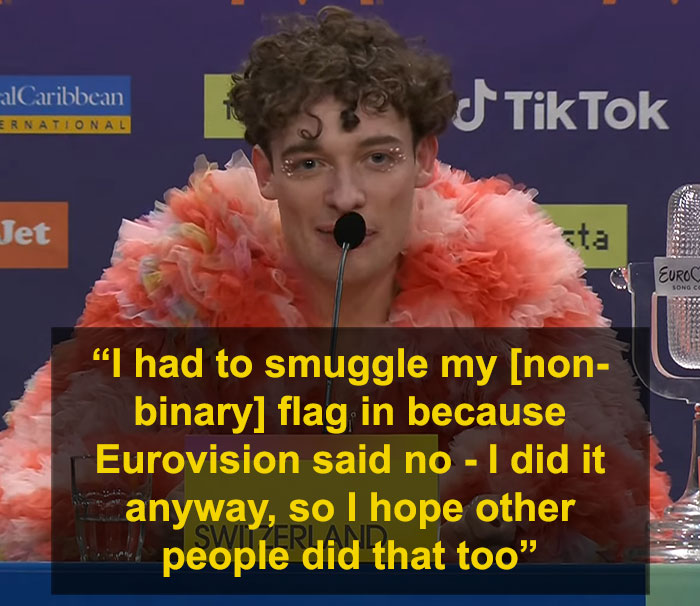
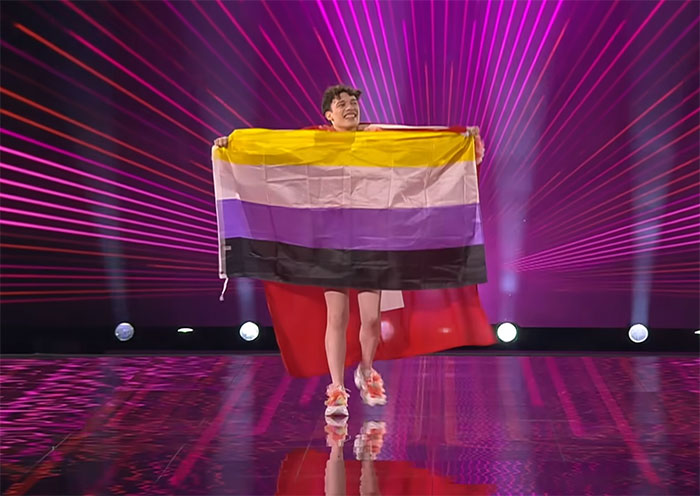
Image credits: Eurovision Song Contest
Furthermore, Nemo described their experience at the annual song contest as “intense” and “not just pleasant all the way.”
“There were a lot of things that didn’t seem like it was all about love and unity, and that made me really sad. And at the same time, there was so much love here as well and coming together and cultures meeting, and people who are just full of positivity.
“I really hope Eurovision continues and can continue to stand for peace and love in the future. I think that needs a lot of work still,” the Berne resident emphasized.
They also accused the organizers of having “double standards”
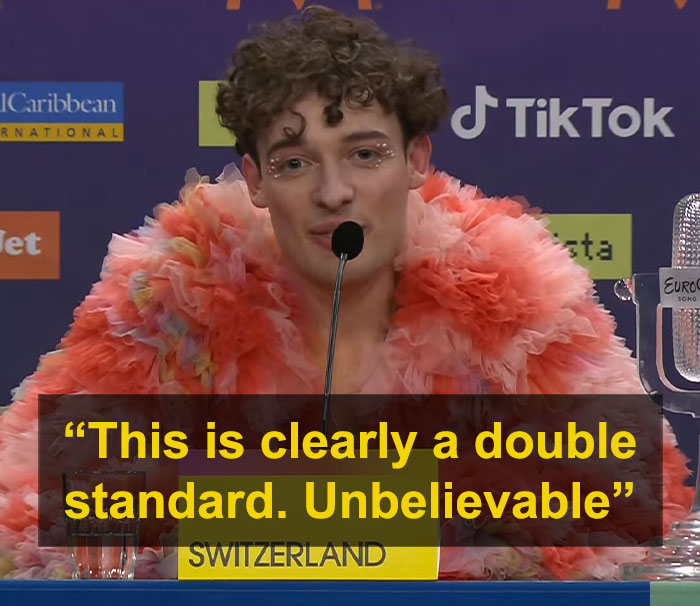
Meanwhile, Ireland’s entrant, Bambie Thug, who also identifies as non-binary, echoed Nemo’s criticism of the EBU.
“I’m so proud of Nemo winning,” they said during their press conference. “I’m so proud that all of us are in the top 10 that have been fighting for this sh*t behind the scenes because it has been so hard and so horrible for us. I’m so proud of us.
“I just want to say we are what the Eurovision is. The EBU is not what the Eurovision is. F*ck the EBU. I don’t even care anymore. F*ck them.”
The Cork singer-songwriter added: “The thing that makes this is the contestants, the community behind it, the love and the power and the support of all of us is what is making change.
“The world has spoken. The queers are coming. Non-binaries for the f**king win.”
The musician, who broke their trophy after their victory, added, “The trophy can be fixed. Maybe Eurovision needs fixing a little bit, too”
Graham saying “dont break the trophy” followed by the clink of Eurovision 2024 winner Nemo smashing the trophy is iconic #Eurovision pic.twitter.com/DgH9ziJmsH
— Louie Rowe (@louierowe_) May 11, 2024
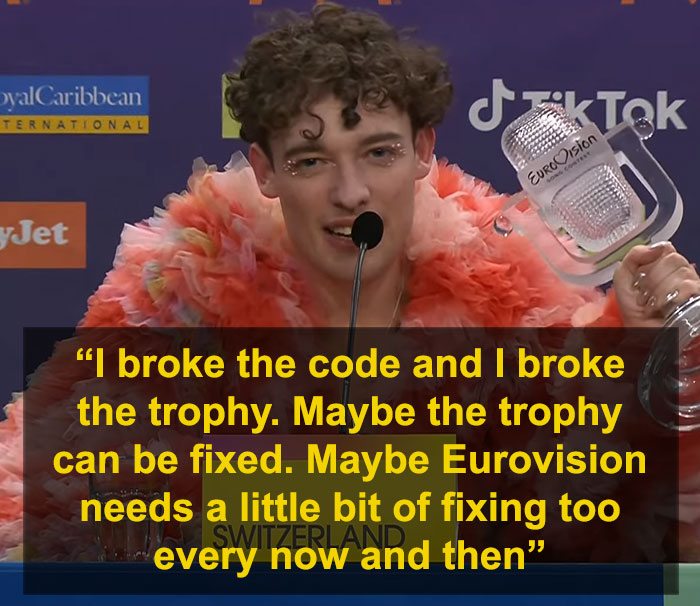
The 68th edition of the famous song contest was one of the most talked-about in Eurovision history because of the involvement of Israel in the midst of the Israel–Hamas war, which led to pro-Palestine demonstrations outside the arena and repeated booing from the audience during the live shows.
Swedish police have reportedly estimated between 10,000 to 12,000 people gathered in the protest march against Israel’s participation in the competition.
Watch the full press conference below:
Image credits: Eurovision Song Contest
With their song The Code, Nemo made history as the contest’s first-ever non-binary winner
Image credits: Eurovision Song Contest
Moreover, the Netherlands’ performer, Joost Klein, was disqualified from the contest after a production crew member reportedly made an “allegation of intimidation” against the singer to local police. Netherlands’ viewers still retained their right to vote in the competition.
The Dutch broadcaster AVROTROS released a statement expressing its “shock” at the disqualification—the first to occur before a Eurovision final—and labeling the decision “disproportionate.”
“I’m so happy that they won,” a social media user commented
